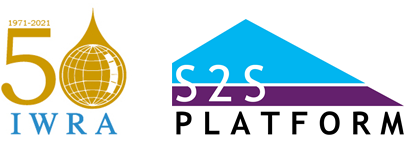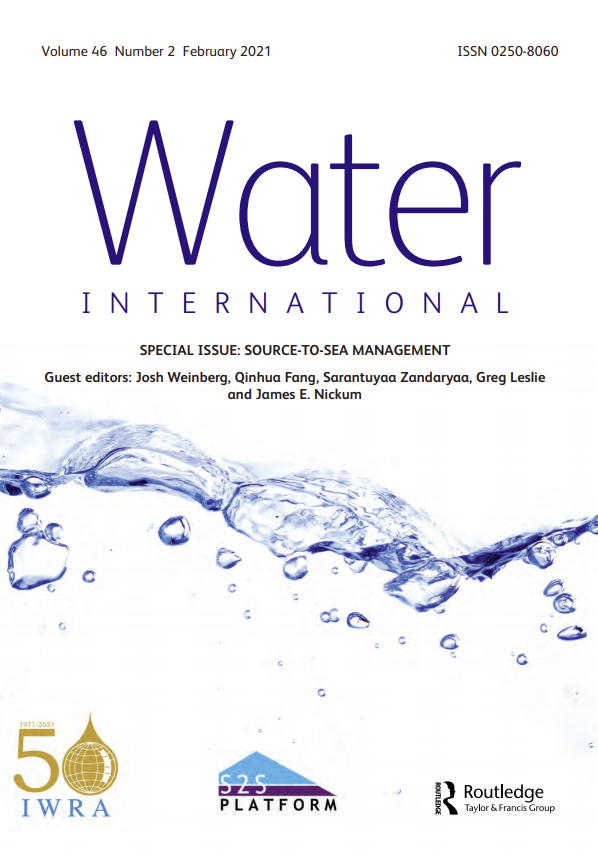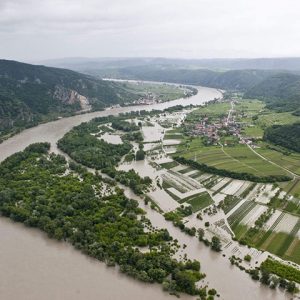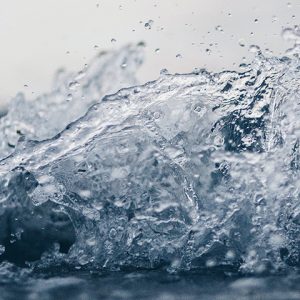
“Source-to-Sea Management”
13 April 2021
This IWRA webinar was based on a Water International special issue on the emerging topic of source-to-sea management. Access this issue by clicking on the image below:
This IWRA webinar on Source to Sea Management was a success with over 450 registered attendees who explored this important topic in-depth.
The panelists presented a range of case studies and perspectives highlighting diverse applications of the source-to-sea approach to improve coordinated management of land, freshwater, coastal and marine systems. One panelist discussed the complexities of addressing pharmaceutical pollutants entering freshwater ecosystems. Particularly concerning, the broader impacts of these pharmaceuticals on flora and fauna in the freshwater and marine ecosystem are also not known. In the Baltic Sea, pharmaceutical pollution was identified as one of the major emerging pollutants that were not addressed by standard wastewater treatment.
Other panelists discussed both the successes and ongoing challenges to control nutrient pollution in the Danube River and Black Sea. They showed how significant measures taken improved environmental quality of these water bodies in recent decades, but require continuous care as diffuse pollution from agriculture across the river system remains challenging to control. Another panelist shared experiences from the Ethiopian Rift Valley, where a source-to-lake framework was applied to develop strategic interventions to reduce sedimentation in Lake Hawassa. It also shared insights on how to connect source-to-lake approaches to the development of basin plans to reduce sediment loads in the region.
Moreover, presentations explored ways that governance networks can be leveraged to better address the issues at different levels of scale and in different sectors. Such networks could support improved agency coordination and multi-stakeholder platforms to connect actors across the source-to-sea continuum. Methods to align common objectives between parties and jointly consider the broader range of social, environmental and economic benefits have strong potential to support adoption of source-to-sea approaches.
Finally, our panel explored some critical points in transboundary water law and management. International water law is a still growing body of jurisprudence whose key themes, such as the drainage basin scale approach and the community of interests doctrine, hold promise for addressing these freshwater and marine linkages.
The panel agreed that the Source to Sea Management perspective has significant potential to address in a more holistic perspective the linkages between freshwater and marine ecosystems and the shared governance between them.
The Source to Sea Water International special issue and the webinar were a partnership with the Action Platform for Source-to-Sea Management, including the Stockholm International Water Institute, UNESCO Intergovernmental Hydrological Programme, Xiamen University and the Global Water Institute at the University of New South Wales. Moderation was provided by Josh Weinberg and presentations from Flavia Rocha Loures, Ruth Mathews, Rebecca Welling, Sarantuyaa Zandaryaa, and Ivan Zavadsky. It was presented by Scott McKenzie, IWRA Webinar Officer.
Access the presentations by clicking on the titles below:
- A source-to-sea approach to emerging pollutants in freshwater and oceans: Pharmaceuticals in the Baltic Sea region
- Nutrient Pollution Reduction – A Danube/ Black Sea success story
- Building foundations for source-to-sea management: the case of sediment management in Lake Hawassa sub-basin of Ethiopian Rift Valley
- Building ‘governance networks’ across the source to sea continuum





